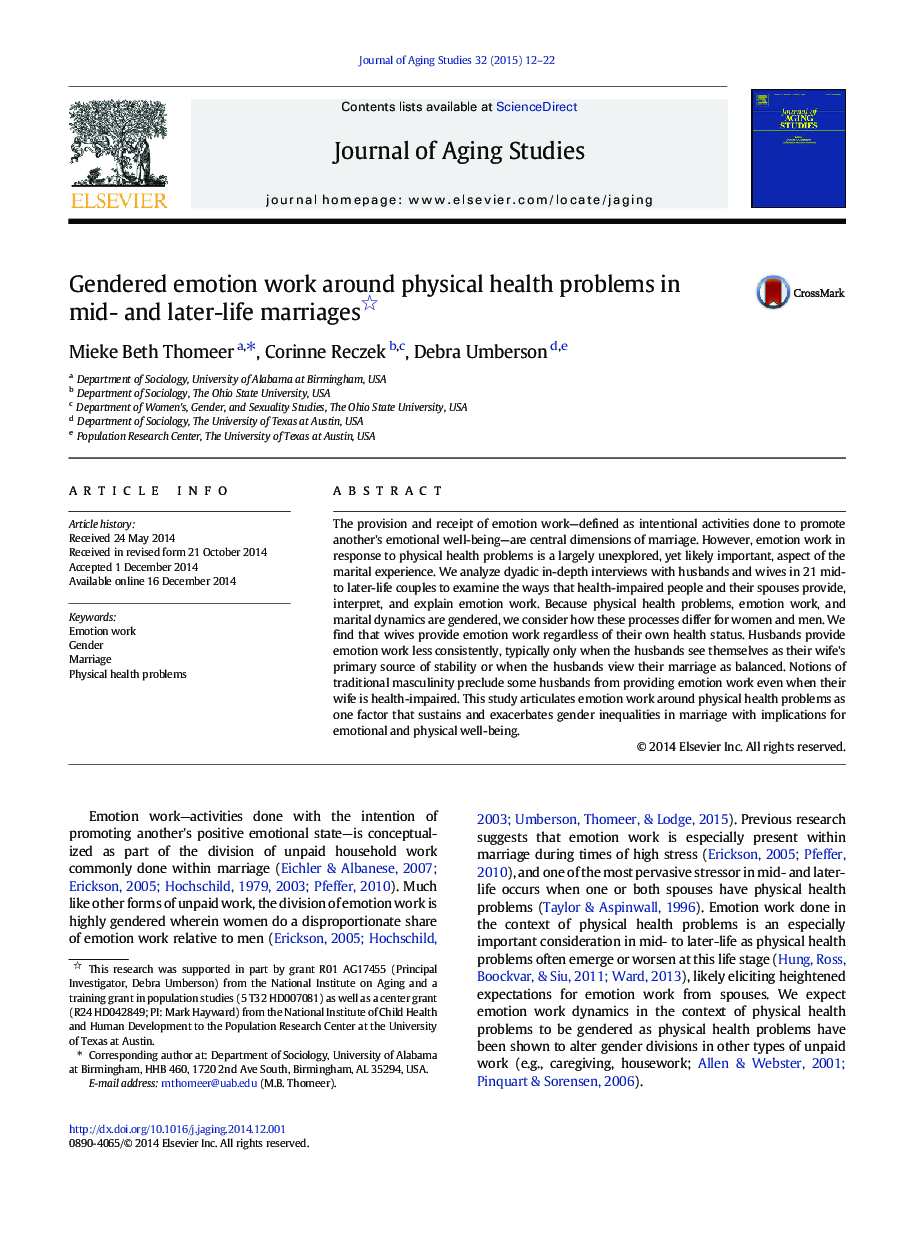| Article ID | Journal | Published Year | Pages | File Type |
|---|---|---|---|---|
| 1081800 | Journal of Aging Studies | 2015 | 11 Pages |
•Regardless of their own health status, women provide emotion work for their spouse.•We argue that doing emotion work contributes to more stress for wives than for husbands.•Husband's emotion work occurs only when viewed as part of their role as a husband.•Some husbands draw on traditional views of masculinity to not do emotion work.•Dyadic methods provide unique insights into gendered marital dynamics.
The provision and receipt of emotion work—defined as intentional activities done to promote another's emotional well-being—are central dimensions of marriage. However, emotion work in response to physical health problems is a largely unexplored, yet likely important, aspect of the marital experience. We analyze dyadic in-depth interviews with husbands and wives in 21 mid- to later-life couples to examine the ways that health-impaired people and their spouses provide, interpret, and explain emotion work. Because physical health problems, emotion work, and marital dynamics are gendered, we consider how these processes differ for women and men. We find that wives provide emotion work regardless of their own health status. Husbands provide emotion work less consistently, typically only when the husbands see themselves as their wife's primary source of stability or when the husbands view their marriage as balanced. Notions of traditional masculinity preclude some husbands from providing emotion work even when their wife is health-impaired. This study articulates emotion work around physical health problems as one factor that sustains and exacerbates gender inequalities in marriage with implications for emotional and physical well-being.
